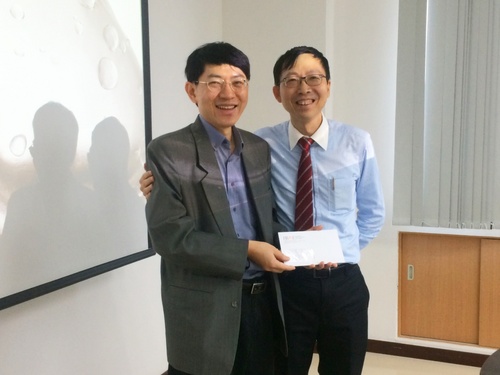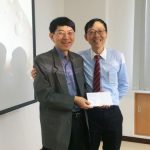 FST Associate Dean (Academic Affairs) Prof Wong Pak Kin (left) receives from a Hong Kong Institution of Engineers representative the notification letter about FST’s programme gaining recognition under the Seoul Accord
FST Associate Dean (Academic Affairs) Prof Wong Pak Kin (left) receives from a Hong Kong Institution of Engineers representative the notification letter about FST’s programme gaining recognition under the Seoul Accord
The Bachelor of Science in Computer Science (full-time) programme, offered by the University of Macau’s (UM) Faculty of Science and Technology, gained official recognition by all the signatories to the Seoul Accord, at the Seoul Accord General Meeting, which was held in Turkey in June. In 2013 the programme was accredited by the Hong Kong Institution of Engineers. The Seoul Accord is a mutual recognition agreement which pertains to computing and IT-related programmes accredited by its signatories within their jurisdictions since 2008. Currently there are eight signatories to the Seoul Accord, namely the United States, the United Kingdom, Canada, Australia, Hong Kong, Chinese Taipei, Japan, and South Korea. The eight signatories have joined together for the primary purpose of contributing to the improvement of computing education worldwide through mutual recognition of accredited academic computing programmes. According to the Seoul Accord, completing baccalaureate-level computing programmes accredited by any signatory will be recognised as being equivalent in meeting the minimum standards of preparation for entry into an appropriate computing profession. In other words, the Bachelor of Science in Computer Science (full-time) programme offered by UM’s Faculty of Science and Technology satisfies the academic requirements for entry to the Australian Computer Society, the Canadian Information Processing Society, and the British Computer Society. It also satisfies the academic requirements for registering as a professional engineer in Hong Kong and Japan.


